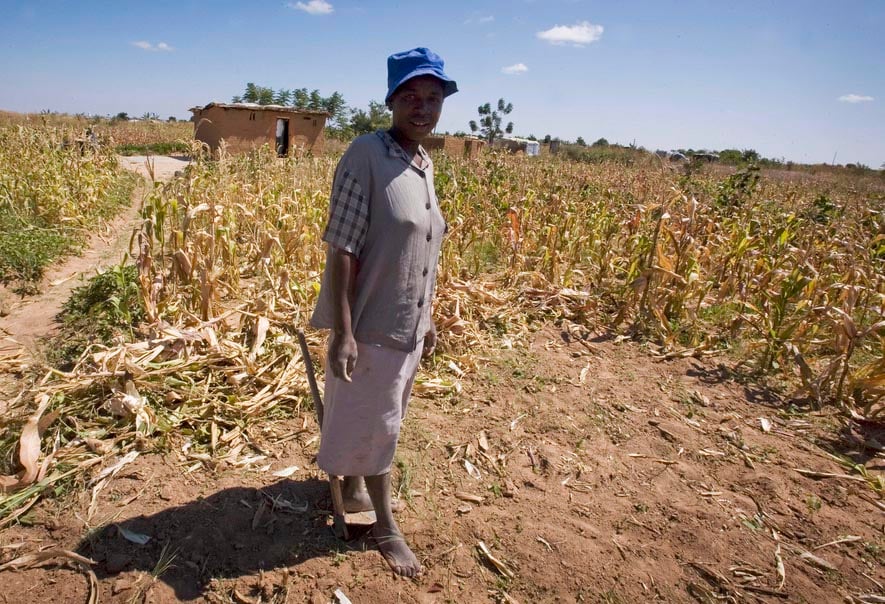The Agriculture Minister, Joseph Made, told journalists the area planted with cereals such as sorghum and maize had increased by thousands of hectares this season from 2009-2010.
However, he cautioned that a good crop was only expected if rains persisted during January. Zimbabwe’s Meteorological Services has predicted heavy rains in the coming weeks.
The area planted with maize was up from 530,000ha in 2009-2010 to 660,000ha this season, said Made. Other grains had also seen their coverage increase from 110,000ha to 174,000ha.
In a decade marked by socio-economic instability, food production has begun to improve in Zimbabwe in the past two years.
A joint mission in 2010 by the UN World Food Programme and Food and Agriculture Organization (FAO) reported that after the 2008 season, when less than 500,000 tons of maize was harvested, production more than doubled in 2009 and 2010, to 1.27 and 1.35 million tons respectively
Although expensive, maize seeds and fertilizers, unlike in previous years, have been available in the market.
| Read more |
More than 900,000 poor households have been given agricultural inputs, noted the FAO in its latest update.
But FAO said it was concerned about food price increases: between September and November 2010, the price of maize rose by some 26 percent in the capital, Harare, after having been stable in the previous months.
The price of maize meal, a staple food, has begun to climb in the past two months.
An estimated 1.7 million Zimbabweans will face severe food insecurity in the peak hunger period of January to March 2011, according to the 2011 UN Consolidated Appeal for Zimbabwe. About 38 percent of the $415 million appeal will take care of food-related needs - down from 50 percent in the last appeal for 2010.
The peak hunger period is when crops are planted and nurtured to maturity.
The appeal in December 2010 has received a little more than $680,000 funding so far, with pledges worth $2.9 million.
Army-worm outbreak
There has been a scare for the agriculturally rich provinces of Mashonaland Central and East in the north after army-worm caterpillars destroyed more than 50ha of planted maize. Farmers in the region said it was one of the most serious attacks in recent years.
The Herald newspaper said the attack threatened national food security, with another 800ha of planted sorghum, maize and pasture land at risk. But it quoted an agricultural official, Godfrey Chikwenhere, giving assurances that they had enough chemicals to deal with the caterpillars.
fd/jk/mw
This article was produced by IRIN News while it was part of the United Nations Office for the Coordination of Humanitarian Affairs. Please send queries on copyright or liability to the UN. For more information: https://shop.un.org/rights-permissions





